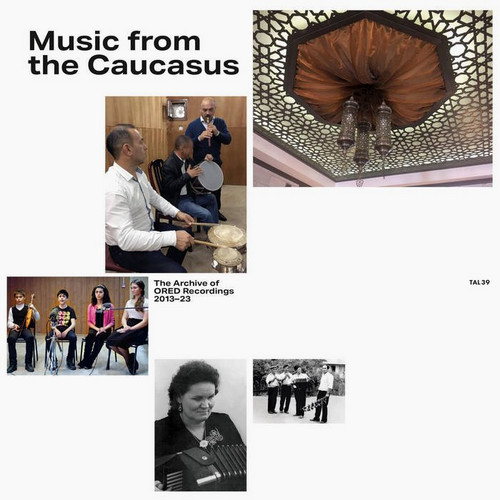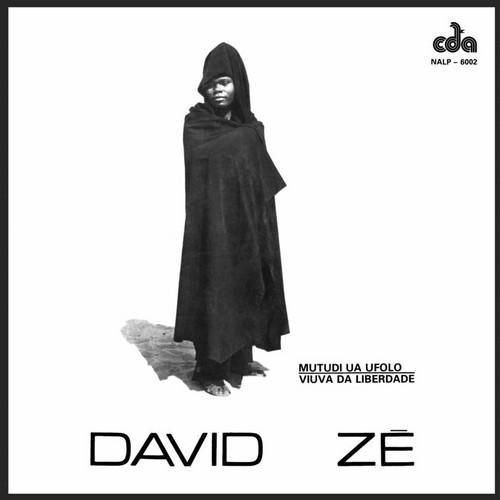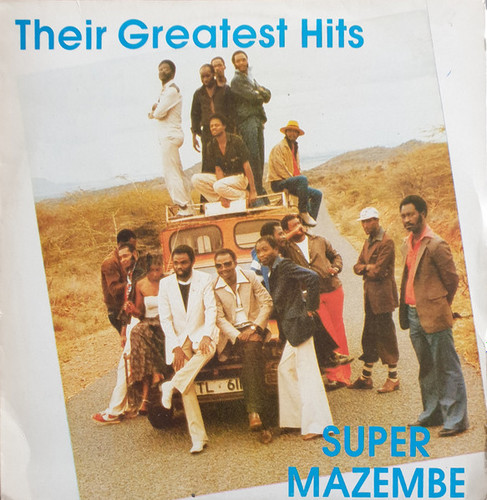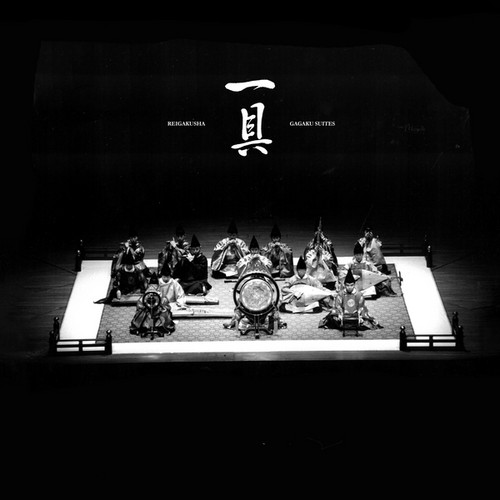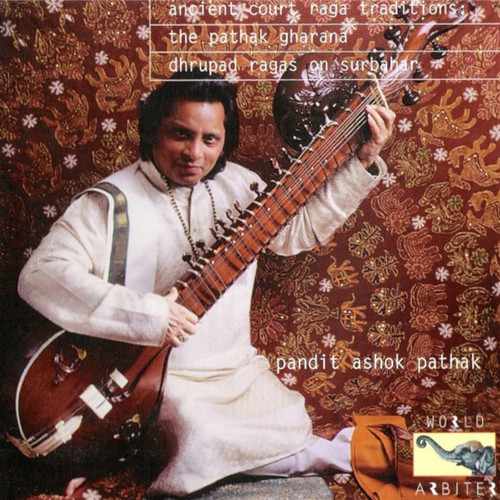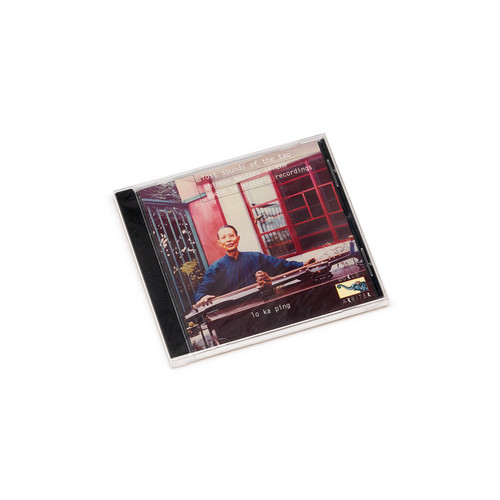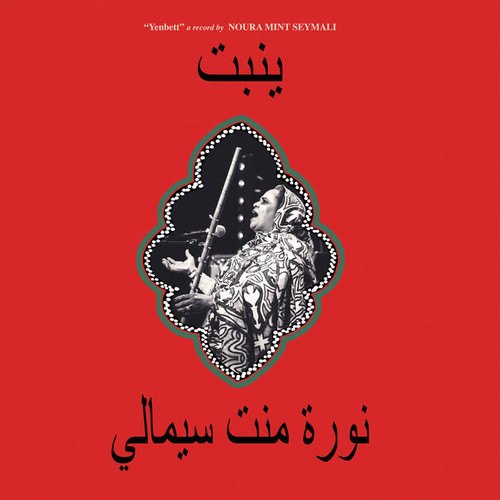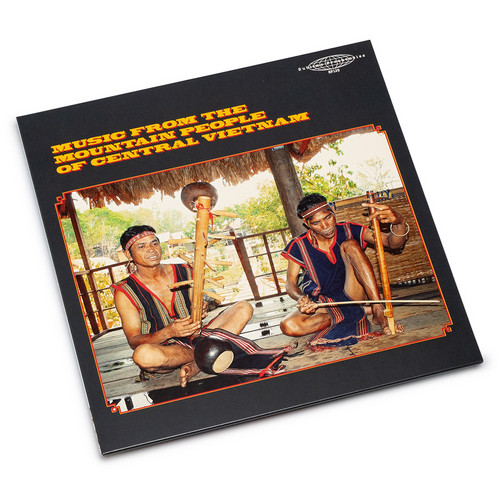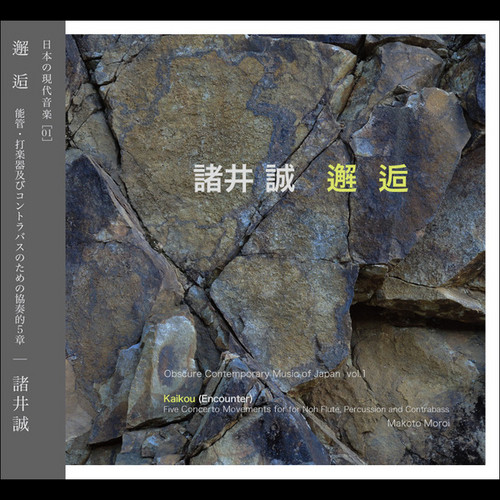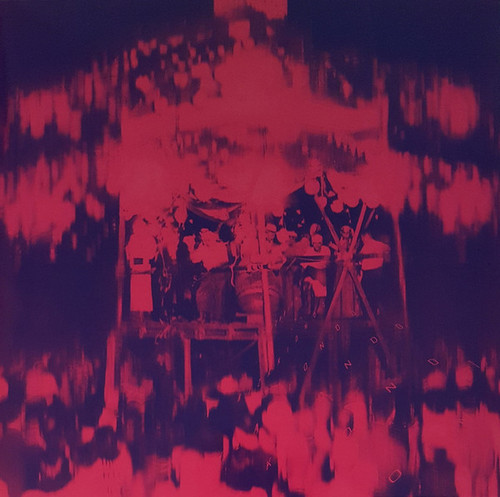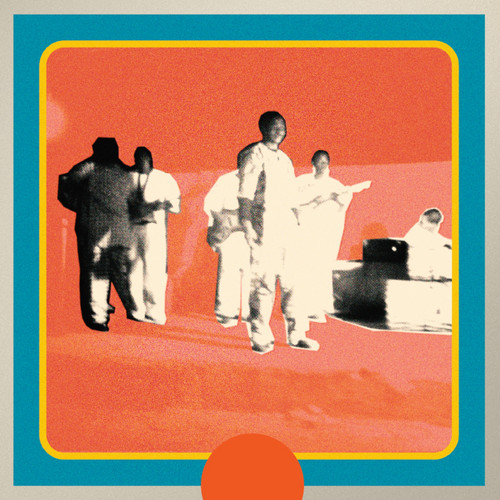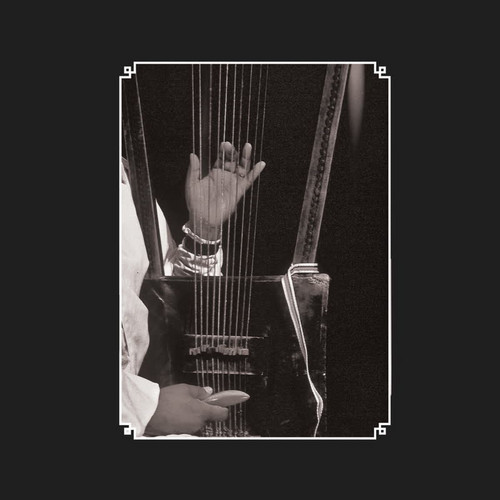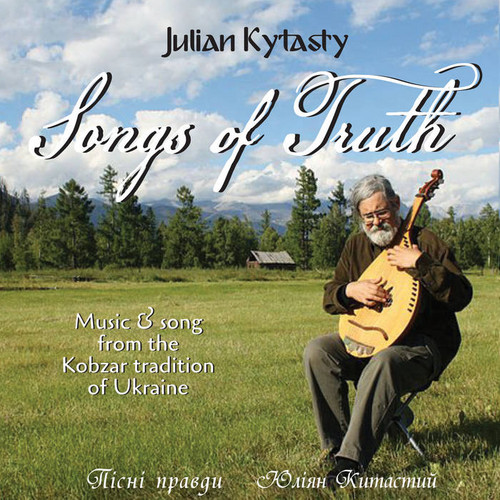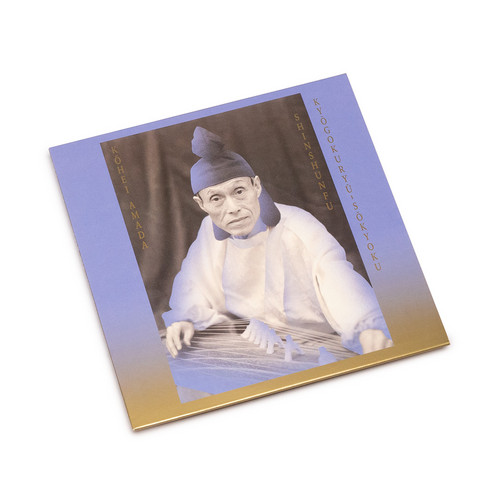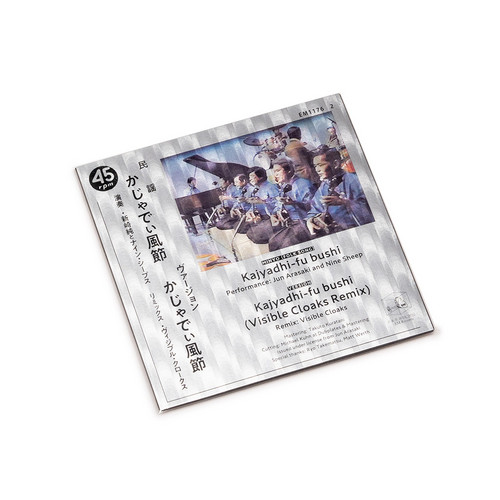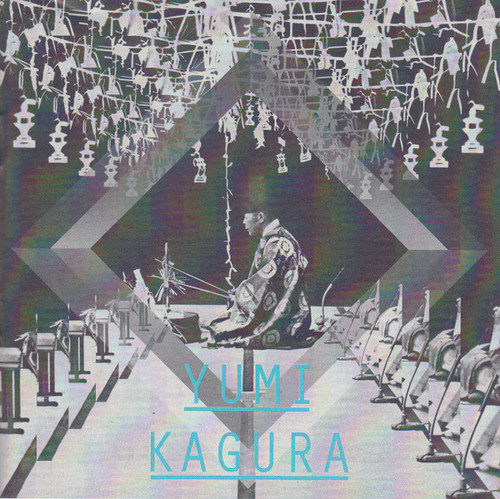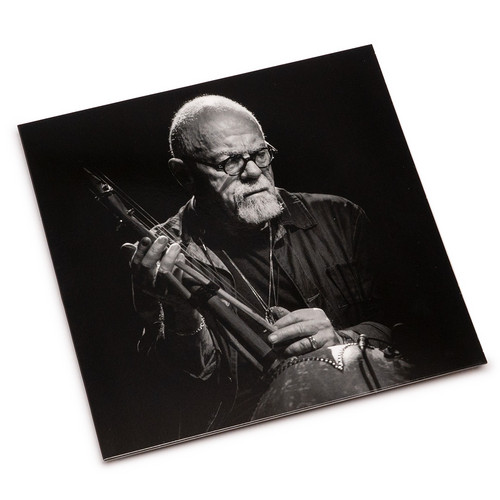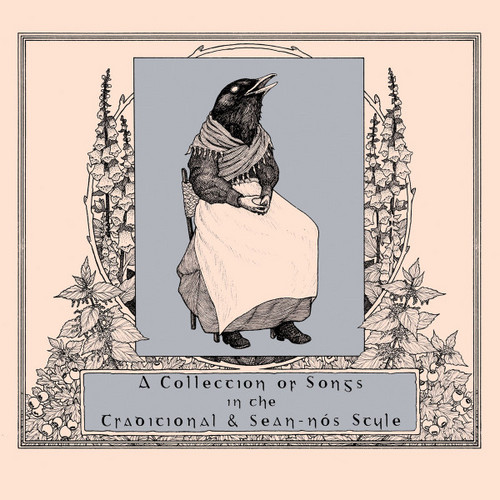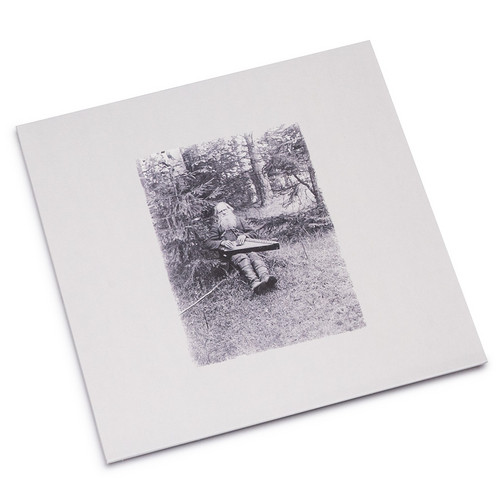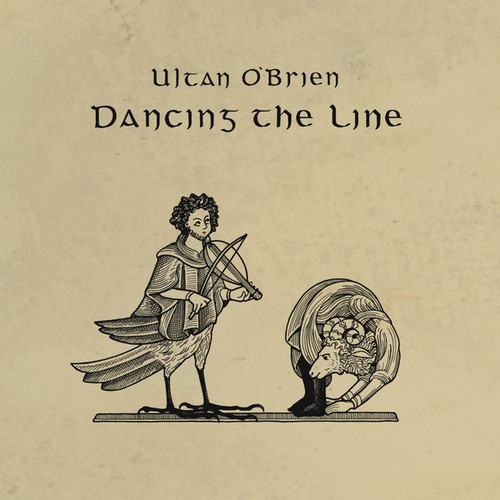Folk /
Music from the Caucasus – The Archive of ORED Recordings, 2013–2023
The label Ored Recordings was founded in 2013 by Circassian friends and fellow musicians Bulat Khalilov and Timur Kodzoko, in order to start an activity which is dedicated to documenting and preserving the traditional and post-traditional music of the North Caucasus. Khalilov and Kodzoko, were just as excited about this music as it sounded like a force that transcends borders and in which time dissolves and community becomes the only compass. Through hundreds of field recordings, which have been…
Mutudi Ua Ufolo/Viuva Da Liberdade
"Mutudi Ua Ufolo/Viuva Da Liberdade" is one of the most important records ever made in Angola. An hypnotic masterpiece that blends Central African rhythms and Semba with soulful guitar and percussion. Originally released on CDA with Conjunto Merengue, it captured Zé at his creative peak. Sung in Portuguese and local dialects, the songs balance rhythmic elegance with deep political weight, tracing ties to Afro-Brazilian and Latin American musical traditions.
After Zé’s assassination in 1977, the …
Their Greatest Hits
Super Mazembe's "Greatest Hits," serves as a definitive collection celebrating the band's remarkable contributions to East African music. Released in 1986, this compilation features a carefully curated selection of the band's most iconic tracks, encapsulating their vibrant sound and the infectious energy that made them a household name. Highlights include fan favorites like "Shauri Yako" and "Kasongo" each track showcasing the band's skillful musicianship and unique ability to blend traditional…
Gagaku Suites
Tip! Gagaku is the oldest of the Japanese performing arts, with a history more than a thousand years old. The term refers to Japanese classical music and dance, traditionally performed by families of musicians linked to the ancient Imperial court, and later passed down in Buddhist temple ceremonies and Shinto shrines. Shiba Sukeyasu, founder and director of the Reigakusha ensemble, descends from the Koma clan, whose origins date back to the end of the 10th century.
The recordings partly reflect …
Ancient Court Raga Traditions
** 2025 stock. ** Ancient Court Raga Traditions: The Pathak Gharana unveils the legacy of Ashok Pathak, torchbearer of a centuries-old musical lineage rooted in expressive sitar and surbahar artistry. The album channels the introspective eloquence and technical invention unique to Pathak Gharana, honoring classical forms while revealing a spirit of fresh musical interpretation through deep alap, intricate meend, and rare court compositions.
Lost Sounds Of The Tao
** 2025 stock. ** Lost Sounds Of The Tao (Chinese Masters Of The Guqin In Historic Recordings) reveals the refined artistry of Lo Ka Ping, presenting rare archival performances that mirror the spiritual depth and cultural resonance of the guqin tradition. The album’s historic recordings capture an intimate sonic landscape rooted in Chinese philosophy and poetic subtlety, honoring both instrument and legacy.
Yenbett
Noura Mint Seymali's 3rd album Yenbett (her first since 2016) is a stunning explosion of contemporary Mauritanian griot music, and once again confirms her status as one of the world's most potent voices. Co-produced by Matthew Tinari (Noura's drummer) and Mikey Coltun (Mdou Moctar) the new album's approach is both raw and experimental; capturing the band's powerful in situ performances with taught clarity and adventuresome sonics. Reflecting her influence, and the acclaim that she's accumulated …
Music From the Mountain People of Vietnam
In the remote villages of Vietnam's Central Highlands, a profound musical transformation is taking place. Traditional songs that have echoed through generations of the Jerai, Banhar, Ede, and Rongao ethnic groups now exist alongside new forms of expression, creating a complex sonic landscape that Vincenzo Della Ratta has documented across two decades of field recording. This exceptional release captures not just the music itself but a pivotal moment in cultural history—the last flowering of anci…
Kaikou
Makoto Moroi (1930-2013), his name is well-known early electronic works at NHK electronic music studio, composed numerous works for Japanese traditional instruments during the 1960s and 1970s. His most notable works include "Chikurai Gosho" (1964) and "Uitenpen" (1973), with "Symphonia for S.M. ― Shin" (1972) considered his crowning achievement. On the other hand, this piece, "Kaikou,” had not been revisited since it was broadcast on NHK FM's "Contemporary Music" program on November 2, 1975.
As …
Kizaki Ondo
"Kizaki Ondo" is a folk song from Nitta Kizaki town in Gunma, north of Tokyo. Played annually by local performers at the Bon-Odori traditional summer dance festival, it features unabashed lyrics about prostitution along with a rhythmic drive sure to appeal to fans of contemporary electronic genres as well as aficionados of traditional musics. The first track is a wildly echoing vocal version recorded in 1980, redolent of humid summer nights; the second track, recorded in 1981, is an instrumental…
Batch #6 - Party
40girls by Ya Tosiba: Rooted in folk music’s storytelling spirit the album introduces a dynamic conversation between generational memory and progressive innovation. It is crafting a soundscape that feels feminine, elusive and powerfully transformative. The album opens with delicate samples of the Şüştər and Rahab makams with its soft and ethereal textures intertwining with subtle, noisy experimentation. Kita Koun Kan by Sabou-Gnouman De Kita: Kita, a small town in the West of Mali was once consi…
Elders of the Begena: The Harp of David in Ethiopia
"The Begena is one of those rare musical instruments of the world that has survived for more than 5800 years. What is fascinating about it is not only its age but the fact that both its manufacture and the purpose for which it is being played have never changed during all these years. It is still made of wood and animal products, such as the intestine of the sheep for the strings, the leather that covers the sound box. It is used for praying, for praising God and for meditation, just as it was i…
Songs of Truth: Music and Song from the Kobzar Tradition of Ukraine
Julian Kytasty is celebrated around the world as a master of the bandura. This plucked-string instrument has become a symbol of Ukraine through its association with the deep tradition of the kobzari. On Songs of Truth: Music and Song from the Kobzar Tradition of Ukraine, he brings expressive clarity and vibrancy to this centuries-old repertoire of these blind bards through skillfully retold historical epics, timeless philosophical songs, biting satire, and joyful dance tunes.
Kyogokuryu-Sōkyoku "Shinshunfu"
"Shinshunfu" exists at a crossroads, a form both distinctly Japanese and distinctly "other", a complex blend of folk strains that is deep with emotional resonance and hard to place even for aficionados of Japanese traditional music.
"Of "Shinshunfu", only the drone of the shō and the occasional taiko hit appear in plain view. The exploration sits comfortably in the idiosyncratic sound world that Ken has been prolifically constructing for himself in the last few years (what he has come to call "…
Kajyadhi Fu Bushi
"This was traditional, transformative music, and music that made so much sense coming from EM's epicenter."― Matt Werth
Printed on special paper embossed with matte silver aluminium foil. Please consider the jacket illustration as an image as the texture of the original cannot be reproduced graphically. The disc is a translucent coloured disc with the image of the Okinawa sun.
A charming set of double transformations on this 7 inch. "Kajyadhi Fu Bushi" is a traditional Ryukyu minyo (Okinawa fol…
Yumi Kagura
"Deep session! It is rare to hear folk music from Japan in such beautiful fidelity and incredible dynamics. This recording is intensely gorgeous and hauntingly disarming. This should open up a whole new world of adventurous listening for folks outside (and inside!) Japan."―Brian Shimkovitz
"Sounds absolutely great! Super interesting and engaging."―Ben UFO
"Just Give Me That Old Time Religion, It's Good Enough For Me."―Japan Blues
A hotline to the gods! Kagura is a thousand-year-old form of Japa…
Christer Bothén Donso n’goni
Black Truffle is thrilled to present the first ever solo Donso n’goni recording from octogenarian Swedish multi-instrumentalist Christer Bothén. Active in the Swedish jazz and improvisation scene since the 1970s, often heard on bass clarinet, Bothén travelled to Mali in 1971, eventually making his way to the Wassoulou region in the country’s south where he encountered the Donso n’goni, the sacred harp of the hunter caste of Wassoulou society. Though playing the instrument has traditionally been …
A Collection of Songs in the Traditional & Sean-Nós Style
Nyahh Records is proud and excited to announce this compilation of singers, which has been on the back boiler for some time!! Inspired by the song collecting of Alan Lomax, this compilation brings together two generations of singers from all across the island of Ireland. Some of the songs previously appear on albums, but the rest were recorded by the singer themselves on their phones to give the song a real and raw effect that brings an authentic feel and immediacy to the songs.
A long standing …
Teppana Jänis & Arja Kastinen
Teppana Jänis was born in the village of Uuksujärvi in Suistamo on 21 June 1850. After becoming blind in the late 19th century, he went house to house, supporting himself by playing the kantele, a traditional Finnish and Karelian plucked string instrument belonging to the southeast Baltic box zither family. He performed at dances and in schools, and also participated in the Suistamo kantele and runosong competitions in 1911.
In the summers of 1916 and 1917, the young folk music researcher Armas …
Dancing The Line
Ultan O’Brien is a fiddle player and composer from the wilds of County Clare in the West of Ireland. Ultan is a performer as well as a regular at sessions all of Ireland and can be found by chance in any pub in Dublin, Cork or some remote village on the edge of nowhere, flying jigs and reels around the room. Ultan was reared in the rich tradition of Irish music which is so commonly found and heard in Co Clare, but he also delves deep into sound art and experimental music.
He has often been heard…
